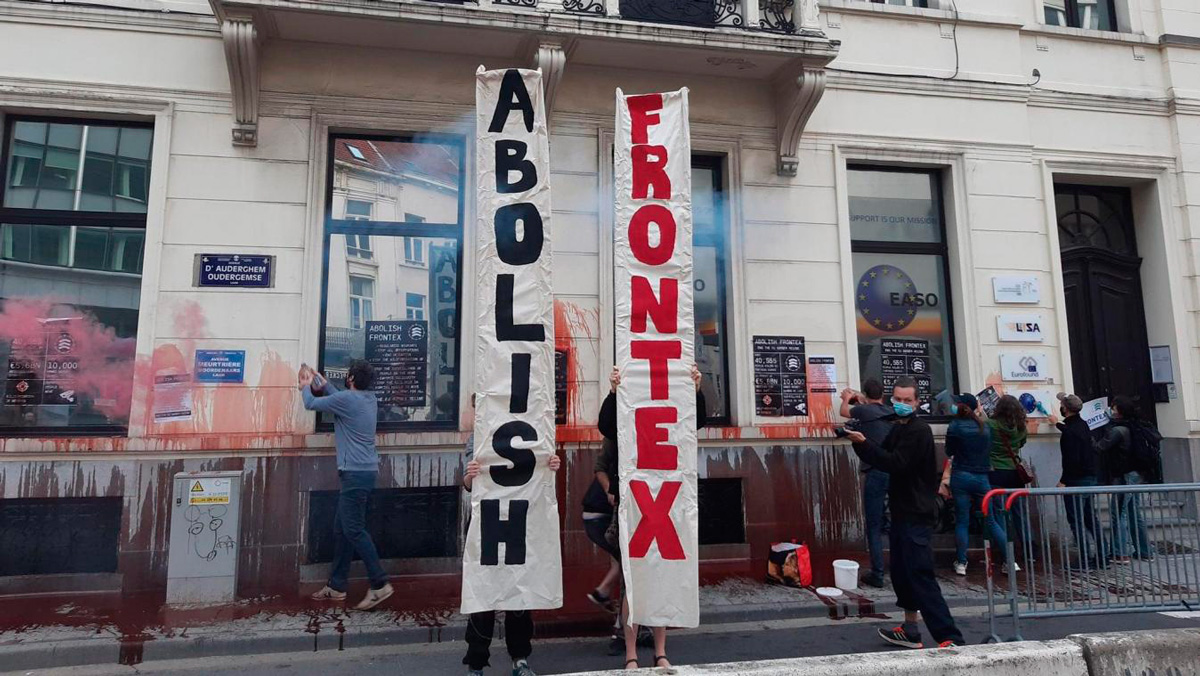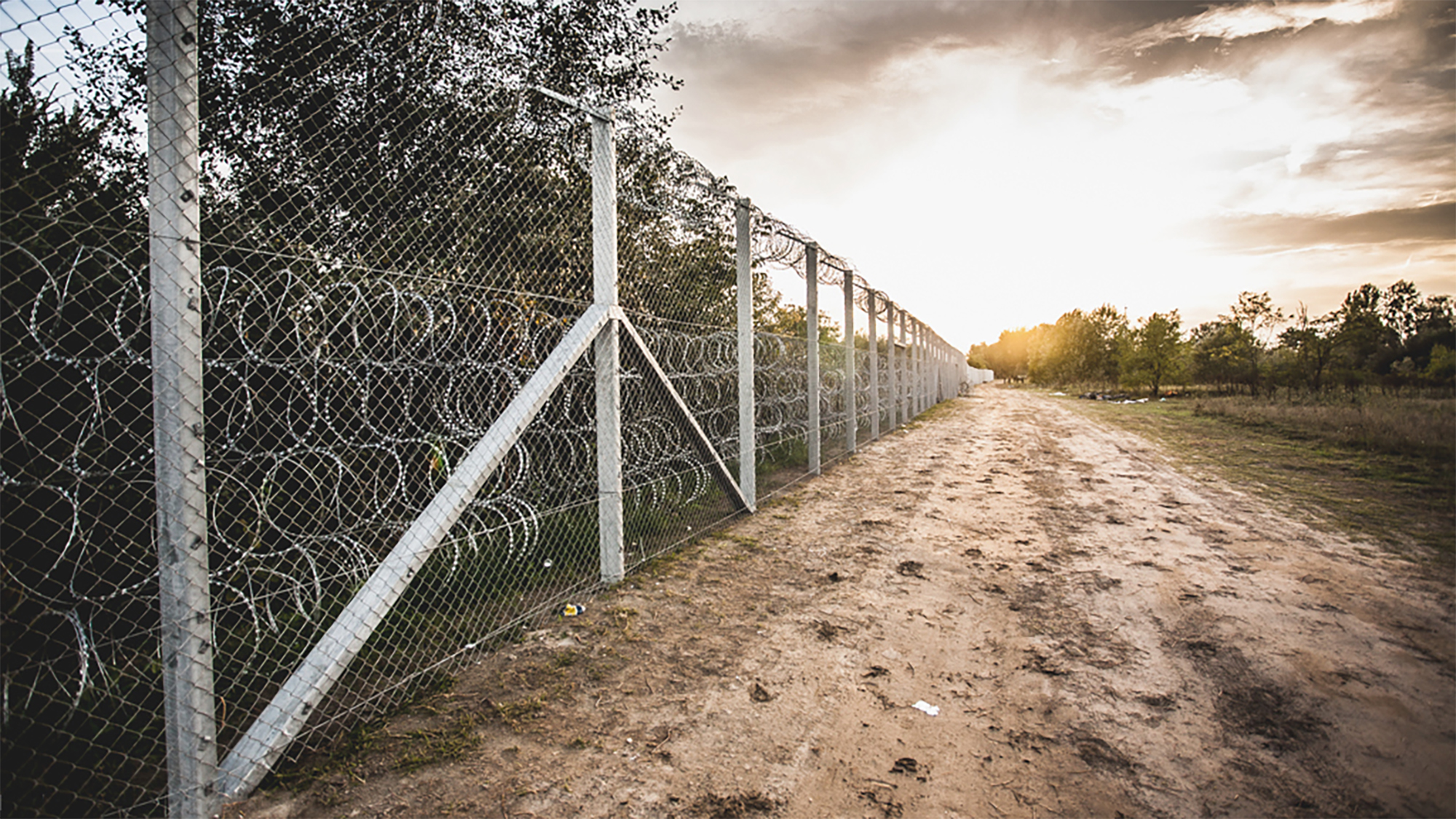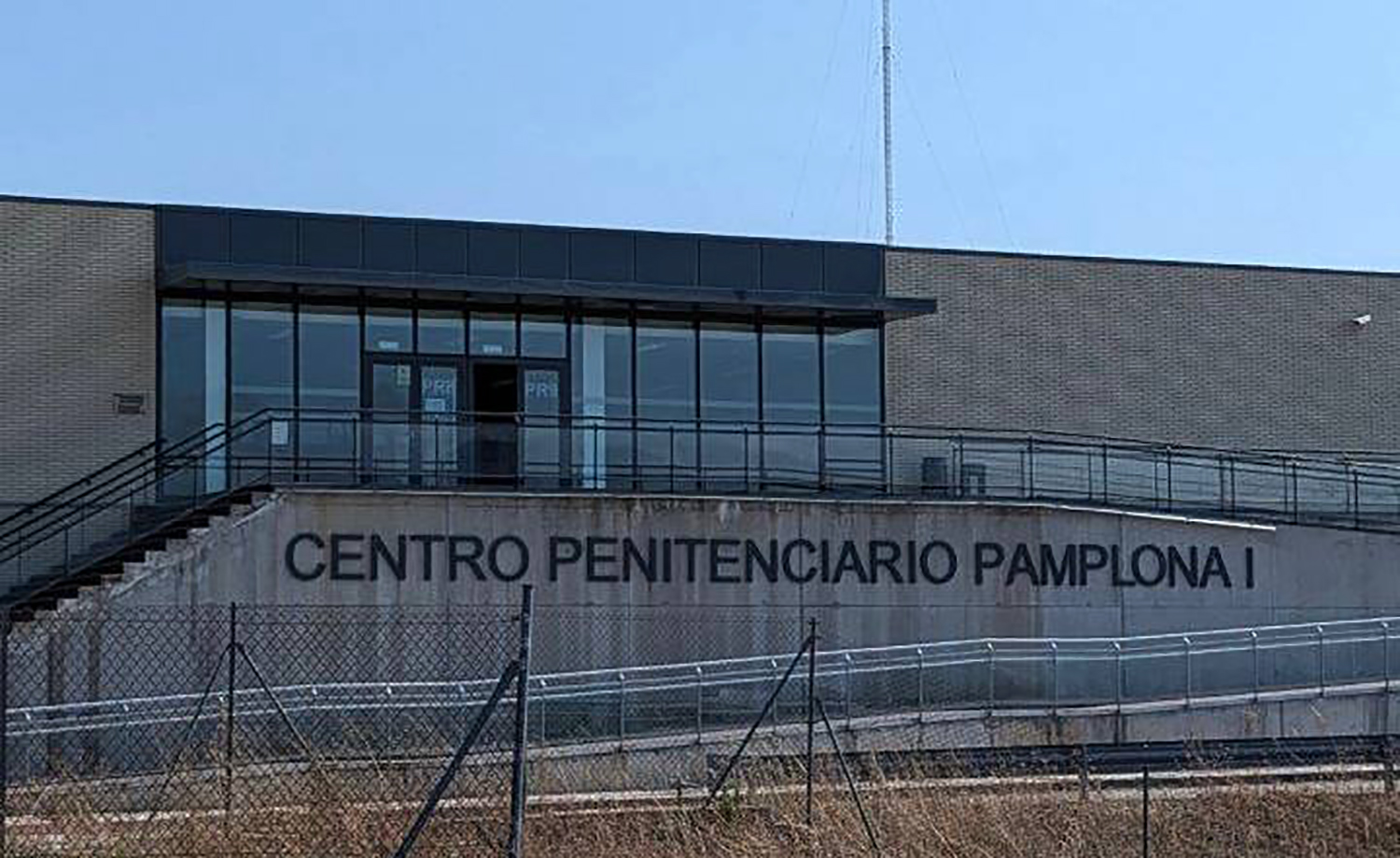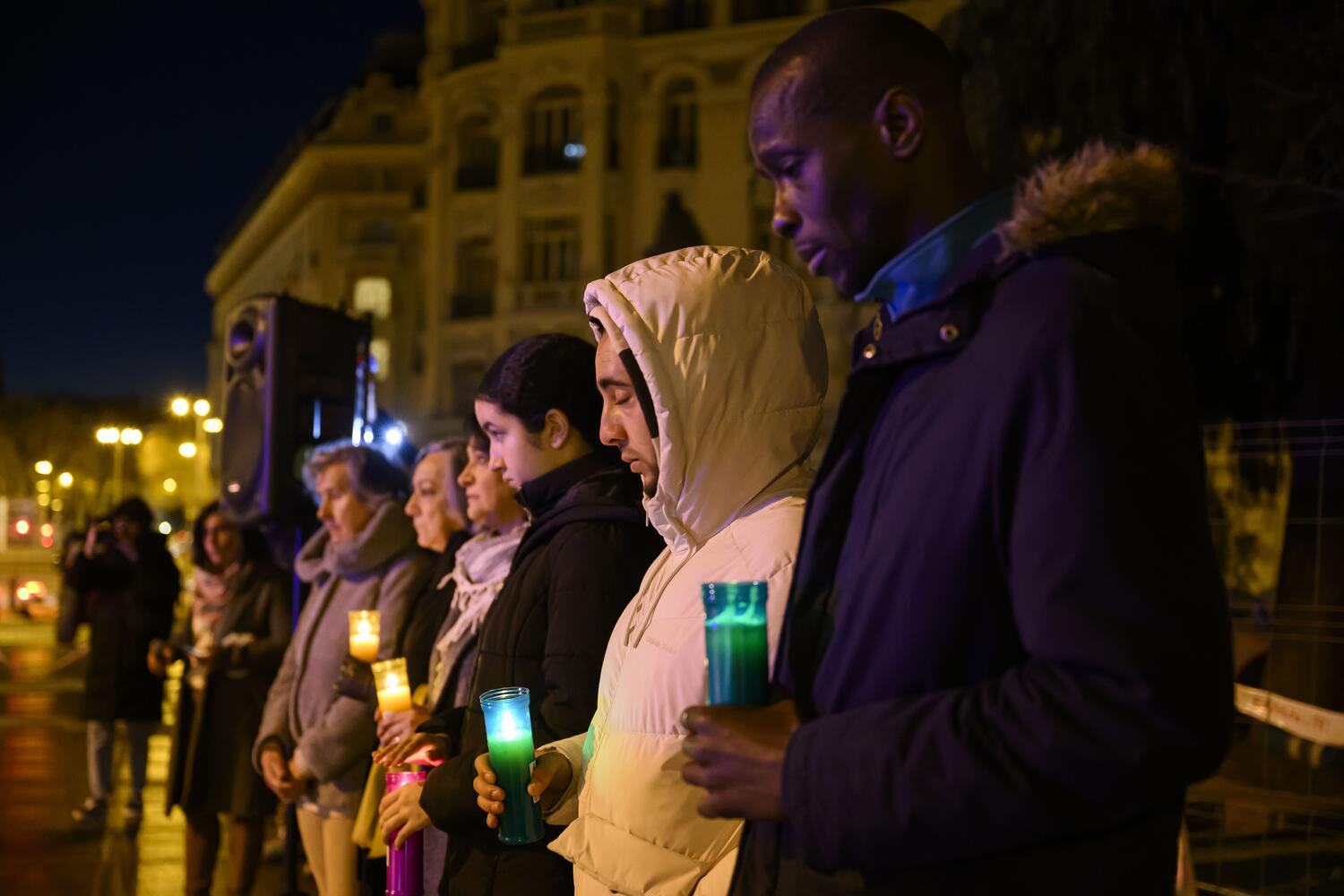Frontex prefers to talk about cybersecurity rather than about human rights
- Since 2004, Frontex has been an agency that controls Europe’s external borders. This is the first time that it has been calling the European Court of Justice for seventeen years, reported by the two undocumented. A judgment of great significance is precisely that, despite the fact that Frontee has many videos and testimonies demonstrating violations of human rights and illegal expulsions, it must never defend its case before the courts. The immigrant has them as “threats” and, regardless of their kinship, invests in cybersecurity and weaponry.

This is the first time that the European Frontex or Border and Coast Guard Agency has been called before the European Court of Justice. He faces two undocumented, one a Congolese minor who has been abandoned to the whole family, and the other, a Burundian woman, surrounded by structures such as Front-Lex, Progress Lawyers Network and Greek Helsinki Monitor, which defend human rights. It is the first time in seventeen years that Frontex will need to explain its circumstances at the level of Justice, defending its own on the cruel trends that accuse it: Risky to the Greek island Lesbos, the agents “have surrounded themselves, stolen, kidnapped, violently detained” and, finally, “have embarked for collective expulsion and abandoned without water or food in a powerless trap.”
“So far, the European Court of Justice has never studied Frontex’s practices and has never offered remedies to victims. We trust the Court, to listen to the victims and see what everyone sees, to ask for Frontexi’s accounts and to restore the rule of law in the European Union’s land and maritime spaces,” can be read in the Front-Lex document. That’s right, “what everyone sees”... because hundreds of videos and testimonies reflect the illegal eliminations of this agency and the violations of human rights. At the same time, both through the path of justice, from investigative journalism and from the citizenry, the pressures against this structure are increasing. The newly created Abolish Frontex movement, with a clear objective, is as follows: “We want the dissolution of this industrial military structure and the implementation of a society in which there is freedom of movement and life.”
Following the request of the European Commission, Frontex was set up in 2004 by members of the Schengen area to channel cooperation between praise in the control of external borders. But soon, especially since 2015, with the invasion of the spectre of the “mass invasion” of immigrants, Frontex’s competences, budget and infrastructure increased, leaving aside the human humility at its base, did it? Its 2006 budget was EUR 19 million, EUR 118 million in 2011, EUR 320 million in 2018 and EUR 460 million in 2020. It should be EUR 5.6 trillion in 2027! Currently there are 1,500 border control agents and within six years there are 10,000.
Huge amounts of money and divers, with hardly any close monitoring. Finally, at the beginning of the year, the European Anti-Fraud Agency launched an investigation into Frontee’s governance with “irregurlatitudes” and “failures”. The European institutions need close continuity, especially when the agency has acquired two new competences. On the one hand, you can buy instruments (aircraft, drones, radars, boats, etc.) In the same way, by quickly assimilating the dependency of the Statuette and, on the other hand, the agents will be armed.
The EU looks at the arrival of migrants with safety glasses and transversally, through Frontex, deals with the powerful companies of the world of armoury and cybersecurity. The February report of the NGO CEO Corporate Europe Observatory shows that the Frontex structure is developing its strategy with these industries. The abstract can be read in the article Frontex, l´EU, the politics of the peur (“Frontex, EB, the politics of fear”) published in the media Medium.com.
Border control: productive business
“These interests of companies are not neutral, and de facto they try to focus Frontee’s vision, purchasing contracts from there” can be read in the article. This is what is known as lobbying and the report explains the relationship between 2017 and 2019: About 130 documents, seventeen meetings and especially meetings with 108 armoury and cybersecurity companies. As can be seen from this report, 72% of relations in the lobby have not been declared in the EU transparency register, although the agency is repeating that it has no relation to lobbies. Surveillance tools (drones, cameras, robots...), the use of biometric data, the exploitation of social networks, and weapons are, in most cases, the issues to be addressed. The report summarises the following contacts: “We can add the positions of the industry in the following statement: technology will respond to all the problems.”
Within this logic, the scandals that have been repeated in recent years in the field of human rights are simply explained. “In almost all dialogues there is a clear omission of the influence these technologies and tools can have on human rights, including fundamental rights to privacy, presumption of innocence and freedom.” Lobbies regard immigrants as “objects to manage”, “as threats linked to terrorism of use and criminality”. “This campaign of terror makes it possible to considerably increase the purchase of biotechnologies, surveillance tools and firearms. The arms industry knows this, and the fear of its benefit spreads”, according to Frontex, l’EU, the politician of the peur.
Choosing cybersecurity
Both Biometrics on the Move and the International Conference on Biometrics for Borders are organizing such reflections in Frontex, which has tools such as face recognition by technology or heartbeat detectors as a solution for the future. Currently in progress, and mainly in January, it sent the European Commission a letter from 61 civil society structures, demanding: “Prohibition or moratorium on the use of automated border and migration control technologies to measure independently whether it respects international human rights standards”. The European Court of Auditors
also made its opinion public on 7 June: Frontex “ineffective”. Since self-criticism, this European institution recognises that many competences have been transferred to the agency without real control and assessment. However, in explaining the ineffectiveness of the Agency, it does not conclude that the closing of limits relates to deaths. High, since the Schengen Treaty signed in 1990, at least 40,000 migrants have lost their lives trying to cross the border.
Politikan, gizartean eragiteko nahiaren eta identitate zeinuetan sakontzearen arteko tentsioa ekidinezina da. Zabaltzearen eta norberaren ezaugarriak indartzearen arteko hartu-emana politikaren adierazle baita. Bi arloak lortu nahi izaten dira, eta elkarren artean elikatzen... [+]
Aljeriatik datoz Mohamed eta Said [izenak asmatuak dira], herri beretik. “Txiki-txikitatik ezagutzen dugu elkar, eskolatik”. Ibilbide ezberdinak egin arren, egun, elkarrekin bizi dira Donostian, kale egoeran. Manteoko etxoletan bizi ziren, joan den astean Poliziak... [+]
Kritika artean abiatu dira Gasteizko Arana klinika zena Nazioarteko Babes Harrera Zentro bilakatzeko obrak. Ez auzokideak, ez errefuxiatuekin lan egiten duten gobernuz kanpoko erakundeak, ez PSEz bestelako alderdi politikoak ez daude ados proiektuarekin: makrozentroen ordez,... [+]
Europako Batzordeak lege-proiektu berri bat aurkeztu du asteartean. Dokumenturik gabeko pertsonak jatorrizko herrialdeetara edo igarotze-herrialdeetara deportatzeko prozesua areagotzea eta azkartzea helburua du.
Harrera-herri euskaldun nola izan gaitezkeen galdetu zion Leire Amenabarrek bere buruari eta parean zituenei iaz, Gasteizen, harrera-hizkuntzari buruzko jardunaldietan, eta galdera horrexetan sakontzeko elkartu gara berarekin hilabete batzuk geroago. Amenabarrek argi du... [+]
“Bi pertsona mota daude munduan: euskaldunak, batetik, eta euskaldunak izan nahiko luketenak, bestetik”. Gaztea zela, Mary Kim Laragan-Urangak maiz entzuten omen zuen horrelako zerbait, Idahon (AEBak), hain zuzen. Ameriketan jaio, hazi, hezi eta bizi izandakoak 70... [+]























